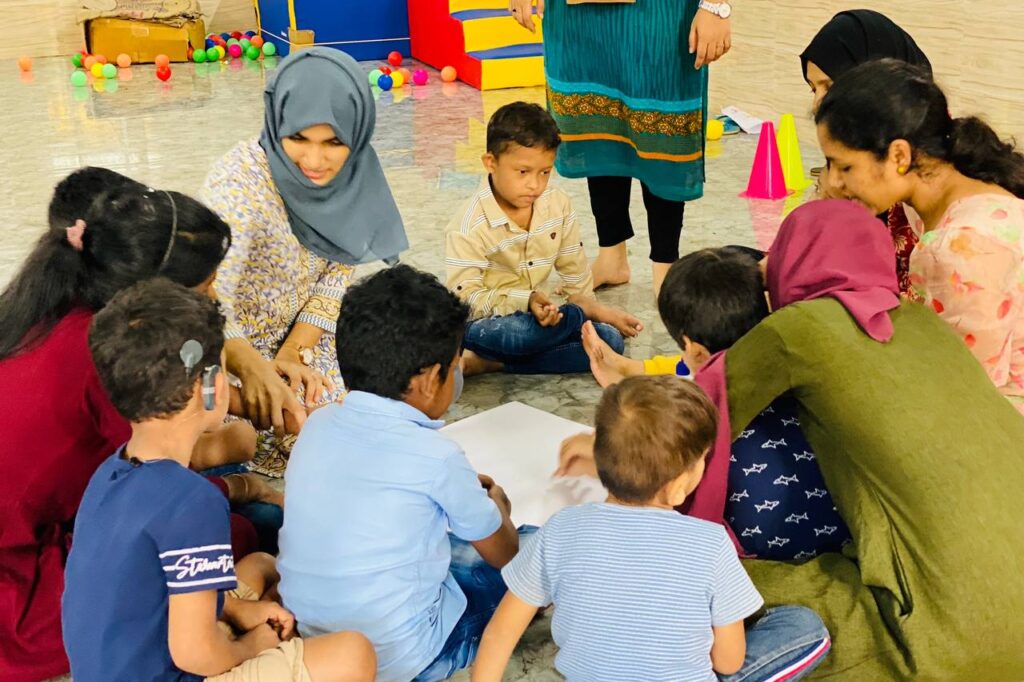Group Therapy
Group Therapy at a child development rehab center can be an effective approach to support children with various developmental challenges. It provides a structured environment where children can interact with peers who may be experiencing similar difficulties, while under the guidance of trained therapists.
Social Interaction: Group therapy allows children to engage in social interactions and develop their social skills. They can learn how to communicate, cooperate, share, and take turns while participating in group activities or discussions. Group therapies are organized by each department once in a week through grouping the children with a specific goal and objectives. Children will get both indoor and outdoor exposure to improve their social skills.

Benefits:
- Peer Support: Being part of a group gives children the opportunity to connect with others who may be facing similar challenges. This sense of camaraderie and understanding can provide valuable emotional support and help reduce feelings of isolation.
- Skill Development: Through group therapy activities and exercises, children can learn and practice various skills that are important for their development. These may include problem-solving, emotional regulation, anger management, conflict resolution, and self-advocacy.
- Observational Learning: Children often learn by observing others. In a group therapy setting, they can observe and model positive behaviors, coping strategies, and social interactions demonstrated by their peers. This can encourage personal growth and facilitate the acquisition of new skills.
- Increased Confidence: As children actively participate in group therapy sessions and experience positive interactions with their peers, their confidence and self-esteem can improve. They may gain a sense of accomplishment, validation, and acceptance, which can have a positive impact on their overall well-being.
- Feedback and Perspective: Group therapy provides a platform for children to receive feedback from both their peers and therapists. They can gain insights and alternative perspectives on their challenges, enabling them to develop a more comprehensive understanding of themselves and their circumstances.
- Generalization of Skills: Group therapy offers a real-life context for children to generalize the skills they learn in therapy to everyday situations. By practicing skills in a group setting, children can transfer and apply them to their interactions outside of therapy, such as in school, home, or community settings.
